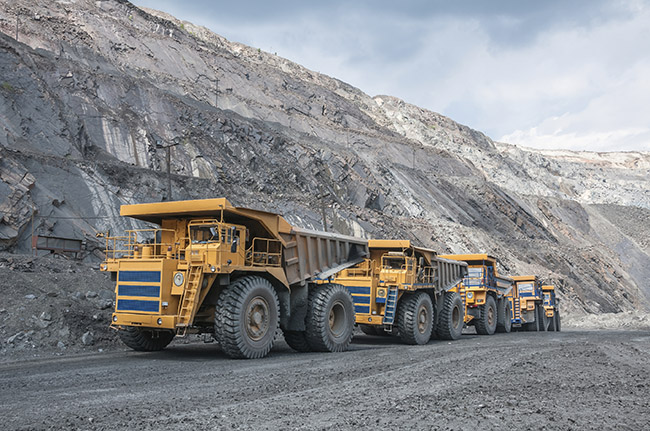
In the last decade, the Australian mining boom has had a massive impact on our nation’s economy.
However, in recent times the productivity and efficiency levels of the mining industry has reached new lows with Japanese trading giant, Mitsui, asserting that Australia’s lagging productivity fails to justify its high mining wages.
Mitsui boss, Yasushi Takahashi, blames labour cost as the biggest problem for Australia’s coal mines, with labour making up approximately 25 per-cent of on-site coal mine costs in Australia compared to 10 to 15 per-cent in other key mining exporters such as China, the United States, South Africa, and Indonesia.
“It’s an inconvenient truth but Australia’s high wages are not supported by equally high productivity,” Mr Takahashi said.
“It is a good thing we are seeing high wages in the most liveable country in the world.”
“If that’s sustainable that’s fine. But one concern is, is it really sustainable?”
Dr John Steen, an Associate Professor of Strategic Analysis from UQ Business School, has released a report in collaboration with Ernst and Young and the Sustainable Minerals Institute (SMI) that looks at the lagging productivity levels in the mining industry, as well as the oil and gas industry.
“Along with some secondary data, we did quite a few interviews with executives, across different sectors, about what they think happened and what they’ve noticed within their organisation,” Dr Steen said.
The report reads, “Productivity in the mining sector has been on a steady decline over the past decade as miners focused on output at any cost in an unprecedentedly high commodity price environment.”
Essentially, Dr Steen believes the expansion of China from 2002 as the reason for Australia’s mining boom. China’s growth placed a massive demand for Australian commodities such as steel, copper, and coal.
“When you’re building cities at the rate that they are in China […] there is a high demand for steel (which you need for building, and that’s a lot of iron ore), anything that involves electricity (copper), and energy (coal),” Dr Steen said.
However, Dr Steen blames The Global Financial Crisis (2007-08) from negatively effecting productivity within the mining industry with many mining companies laying-off trained and experience workers in order to cut back on costs.
“During [that time] a lot of these companies let people go and they thought that would be the end of it. But [China] threw a lot of money at their economy and the demand just took off again,” Dr Steen said.
“A lot of experienced people were let go, a lot of knowledge was lost and they went into this massive ramp-up phase with not a lot of capacity […] When this happens you have to hire anyone that you can and that’s how the inefficiency crept in.”
“If you actually talk to the managers they’ll tell you ‘we actually lost control, we were managing operations poorly and a lot of the productivity loss was because we forgot how to be miners’”
Despite this slump in productivity, Australia’s average mining wage is more than double that of that US, which has led to many experts, including Dr Steen, to believe this is an unsustainable way of operating.
“It’s definitely not sustainable at the moment because coal and iron ore prices are through the floor, and you just can’t sustain wages,” Dr Steen said.
“At the moment, there are mines shutting down all over the place; the big mines will be the last ones left standing. Eventually there will be an oversupply of people [causing them to] take lower wages.”
Moreover, Dr Steen believes Australia’s mining industry needs to justify the high wages by following in the steps of other countries, such as Germany, in the way that they “invest a lot in terms of research and innovation.”
“In mining, there has been a deficit in innovation; the practices in mining haven’t changed in a really long time. Wages have just escalated particularly when they tried to hire anyone that they could,” Dr Steen said.
“It just got out of control!”
Regarding the opinion of Mitsui boss, Yasushi Takahashi, Dr Steen agrees that cutting costs will help in the short term but that it won’t solve the productivity issues in the long run.
“Everyone’s pulling the cost leaver at the moment, but cost cuts don’t fix productivity. To be sustainable in the short term, companies need to cut costs but in the long term they need an agenda around productivity. That means that miners need to find different ways of doing things. That means actually making investments,” Dr Steen said.
The report suggests that using “technology and data to enhance integration “will enable new working practices to evolve and therefore “understand what good performance looks like”. Furthermore, productivity can also be dealt with by “sustaining end-to-end transformation through culture” by highlighting engagement (empowerment, flexibility and self-direction), measurement and reward (align to productivity measures not headline outcomes), and ongoing talent treatment (requiring systems thinkers to manage complexity).



